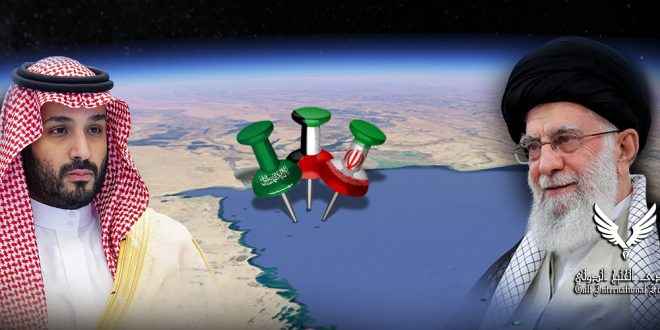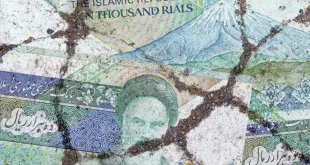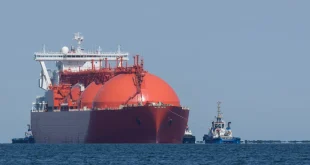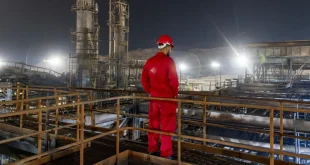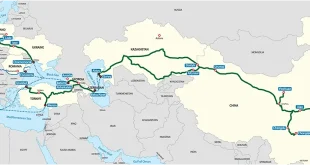Energy diplomacy and national interest suggest a good opportunity for Iran and Saudi Arabia, each within the framework of its own national interests, to jointly extract oil and gas from this field.
Over the past two decades, Iran’s Ministry of Oil had made increasing the production capacity of oil and gas from its shared fields one of the central priorities of its Ministry of Oil. However, the continuation of sanctions has prevented Tehran from doing so by blocking Iran from attracting foreign investment and acquiring modern technology. The tumultuous economic recovery from the COVID-19 pandemic and Russia’s invasion of Ukraine, has created new challenges for global oil markets, including the need to increase oil production, access new oil reserves, manage the decline of old field reserves, and maintain and upgrade technical knowledge to address these challenges. Thus, Iran’s oil industry and its government have set new goals in the energy sector to maximize available facilities and attract and support foreign investment in upstream oil and gas activities, particularly in joint fields and exploration projects with other nations. Iran shares 28 joint oil and gas fields with its neighbors; the most important of these, by far, are the West Karun oil fields and the South Pars joint gas field, which it shares with Iraq and Qatar, respectively. Although Iran has always emphasized cooperation with neighboring countries in the development of joint fields, it has never signed over any of its rights in these fields unless absolutely necessary.
The Saudi-Kuwaiti Dorra Project
In recent years, there have been several rounds of negotiations between Kuwait and Saudi Arabia to start extracting the resources of the Arash-Dorra natural gas field, which the two nations share, a portion of which Iran also claims although its precise borders are a matter of ongoing contention. Given that a significant portion of Saudi Arabia’s oil production is used to generate electricity at its power plants, it has sought, in recent years, to increase the share of natural gas and renewable energy in its portfolio. If Saudi shale gas extraction becomes more economical, some sources estimate that Saudi Arabia could increase its oil production and export capacity by about 1.5 million barrels per day—a development that could come as a major shock to the market. In October 2009, the Kuwaiti newspapers Al-Qabas and Al-Rai quoted several sources claiming that the two nations had reached an agreement to resume oil extraction from jointly managed fields in the neutral zone. In recent years, Iranian officials have expressed concerns about the unilateral action of Kuwait and Saudi Arabia in the Arash-Dorra gas field and claimed that the two countries’ moves run against the national interests of Iran. On the other hand, however, Iranian military vessels entered the maritime territory of Kuwait and Saudi Arabia in May 2016—a provocation that Kuwait and Saudi Arabia each protested at the United Nations, describing it as an Iranian threat. Following the new agreement between Kuwait and Saudi Arabia on Arash-Dorra field, the tension between Saudi Arabia and Iran might increase.
As the Kuwait Oil Company recently reported, Kuwait and Saudi Arabia each signed a document to develop the Arash-Dorra field, which is expected to produce 1 billion cubic feet of natural gas and 84,000 barrels of condensate per day. Iranian Foreign Ministry spokesman Saeed Khatib Zadeh reiterated in April that Iran would “reserve the right to use the gas field” as it felt appropriate, noting that its behavior would be consistent “with previous agreements.” The report added that “any action in this area must be coordinated by all three countries.”
Saudi Arabia‘s state news agency reported on Wednesday, April 13, that Saudi Arabia and Kuwait had invited Iran to participate in talks to determine their national boundaries in the gas field in the Persian Gulf. This step marks a step down from Kuwait’s previous maximalist position, wherein Kuwaiti leaders had insisted as recently as March that the gas field belonged “entirely” to the country and Saudi Arabia.
Gas Exploitation Disputes
From the beginning of the discovery of the Arash-Dorra gas field, the dispute between Iran and Kuwait over the water border between the two countries has precluded significant extraction from either side. Although the dispute was initially restricted to comments in joint meetings, Iran raised the stakes in 2001 by deploying drilling equipment to “its” side of the field, leading Kuwait to lodge a series of complaints with international organizations. Apparently, in an effort to maintain good neighborly relations to help resolve the issue and determine the boundaries of exploration activities, Iran voluntarily stopped its development of the field. Kuwait followed suit, suspending a joint project it had initiated with Saudi Arabia in 2000. In the two decades since 2001, Iran had prepared a plan to start extracting energy resources from the disputed field.
Following the 2019 attacks on Abqiq oil facilities in Saudi Arabia, in which Riyadh accused Iran of masterminding, tensions between Tehran and Riyadh reached a peak. Tehran strongly denied Saudi accusations of complicity in the attacks. Moreover, tensions remain high between the two countries over Saudi Arabia’s ongoing war in Yemen. Although Iran has publicly denied involvement in the war, Saudi authorities have produced evidence that Tehran supplied the Houthis with ballistic missiles, drone parts, and more conventional weapons. To resolve the issue, leaders from Tehran and Riyadh have met in Baghdad five times, with the Iraqi government acting as a mediator in the hope that a decrease in Saudi-Iranian tensions will lead to a lower level of violence in Iraq, a frequent battleground for their disputes in recent years.
Saudi Arabia Watches
Since the Russian invasion of Ukraine, the United States has taken action to increase the amount of crude oil entering international markets in an attempt to lower prices. Western officials have also pushed for a new nuclear agreement with Iran, which would increase the global oil supply if Iranian oil supplies can re-enter global markets. If this happens, it would threaten Riyadh’s tight control on OPEC – along with Russia through OPEC+ agreement –as Iran has more than 100 million oil barrels in floating storages, ready to enter the market once sanctions are lifted. Consequently, Saudi Arabia has worked to undermine the prospects of Iran returning to global markets—and take steps to reduce its oil and gas supplies even if it does.
Based on this observation, the fact that the Dorra dispute re-entered public discussion just as Iran was on the verge of a probable nuclear agreement may not be coincidental. Both Saudi Arabia and the UAE have expressed outrage about ongoing Houthi missile attacks on Saudi and Emirati oil facilities and have continued to implicate Iran in those attacks. At the same time, Saudi Arabia has warned the West that attacks on Saudi infrastructure would limit Riyadh’s ability to act against global oil shortages, meaning it could not respond positively to Western requests to pump more oil.
Each of the three countries reserved its unilateral right to develop the Arash-Dorra natural gas field. Notwithstanding that stance, energy diplomacy and national interest suggest a good opportunity for Iran and Saudi Arabia, each within the framework of its own national interests, to jointly extract oil and gas from this field. Naturally, Kuwait would also wish to participate in all stages of exploration and extraction. On the other hand, Iran’s possible agreement with the United States on the nuclear issue could escalate tensions in the region. The technology and financial resources of Iranian companies do not currently meet all the needs of the Iranian energy industry, so Western sanctions relief would open the way for Tehran to secure investments for its fields. At the same time, the Dorra field’s natural gas resources will play an important role in the energy security of all three countries in the future. All sides must have sufficient will to solve the existing problems between them, because the mutual prosperity that would result from cooperative exploitation of the disputed gas field could be a catalyst for solving other regional disputes.
www.gulfif.org

